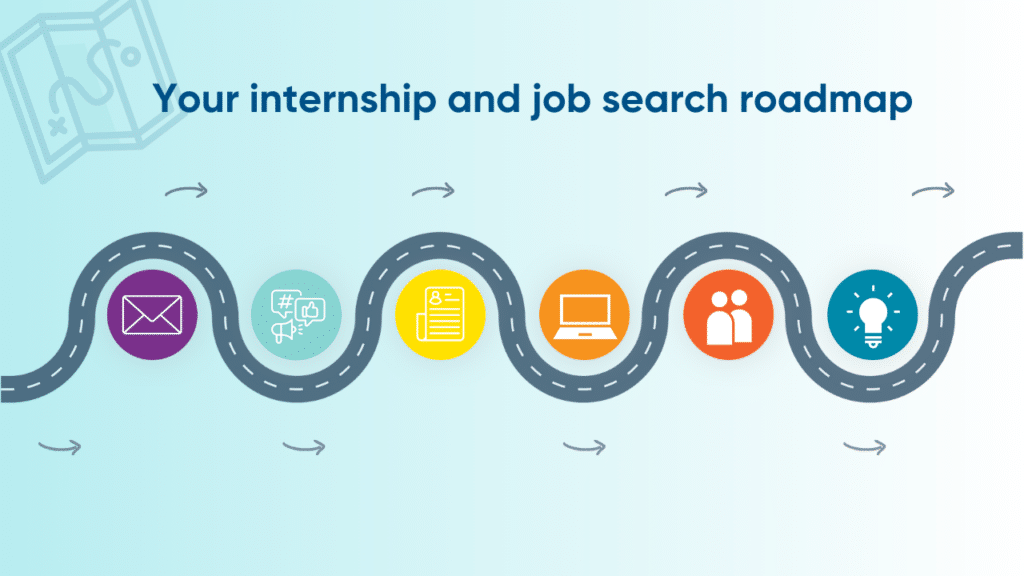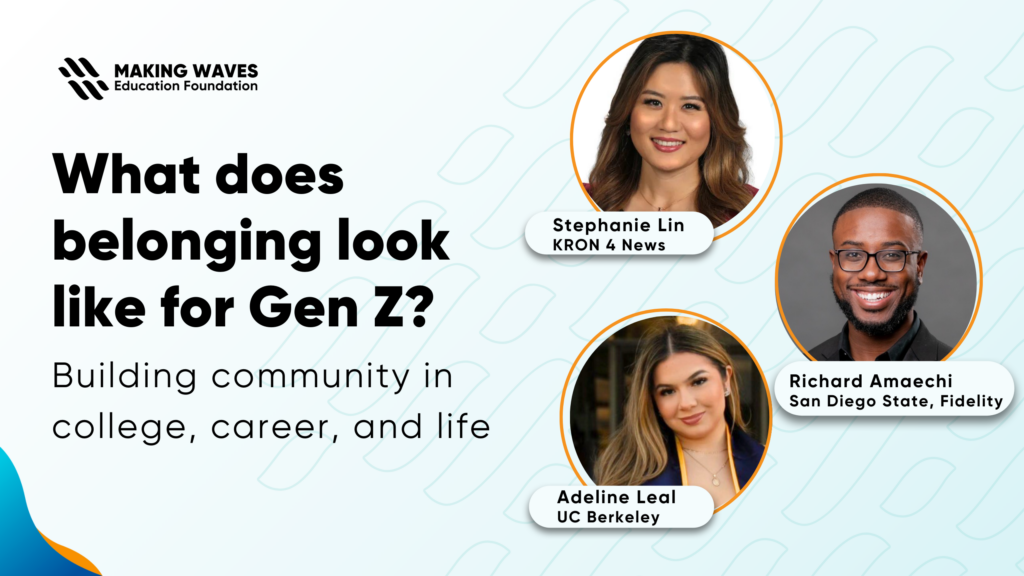
As the career services manager at Making Waves, I often get questions from college students about internships. Are internships worth it? Are paid internships an option? Do internships help with my overall career goals?
My answer is “yes!” Internships provide valuable resume-building experience, help your confidence, and help you land a job after college graduation. Here are the eight reasons to get internships during college.
1. Gain work experience and skills
Internships give you the opportunity to gain hands-on experience and develop valuable industry specific and transferrable skills. Not only that – internships are also one of the strongest indicators for job attainment (within six months of graduating from college).
Whether your internship directly relates to your major or ultimate career goals, any professional experience can pay dividends after you graduate and look to enter the workforce full-time.
💡 Fun fact: According to the National Association of Colleges and Employers, or NACE, paid interns are about twice as likely to land a job after graduation compared to non-interns.
2. Grow your network and gain mentorship
Internships present an amazing chance to organically build your network, especially with folks within your industry of interest.
You’ll have ample opportunities to ask for informational interviews and to seek out mentors. A mentor could be your manager, a coworker, or a leader in a different department.
Not only does having strong professional connections contribute to your overall internship experience, these connections will help you later as you continue to navigate your post-grad plans and career choices.
💡 Fun fact: Aptitude Research found that approximately 82% of employers use employee referalls to source, identify, and shortlist candidates.
3. Understand different industries better
Sometimes the best way to learn is by doing!
Internships can provide career insights, helping you affirm, re-affirm, narrow, or even dispute the career or industry you’re considering. What better way to explore than through a short-term internship?
Being immersed in a professional setting can offer insight into whether a specific career, industry, company, or work environment is a good fit for you. It can also help you identify areas of a career that you want to focus on or specialize in.
4. Add to your resume and get a competitive advantage
A result of completing an internship is being able to add your new skills and qualifications to your resume.
Internships also serve as a valuable talking point in future cover letters or interviews. This means you’ll have a competitive advantage over other candidates when applying for future internships or your first job out of college.
💡 Fun fact: According to the Educational Resources Information Center, or ERIC, students who participated in more than two internships, were twice as likely to find employment within six months of graduating from college, compared to those who did not secure an internship.
5. Get helpful feedback
Internships give you a unique opportunity to identify strengths, weaknesses, and have access to helpful feedback from a manager.
This feedback in a professional setting can go a long way, especially at the beginning of your career. Feedback allows you to continue to improve ahead of entering the workforce full-time.
We’re all a work-in-progress. Being able to learn and grow will only help you in the future!
6. Help your bank account!
Though not required by federal law, many companies offer paid internships that pay at or above minimum wage. The benefits of a paid internship are two-fold: you can earn a competitive salary and your earning potential increases for the future.
Not all internships are paid, but those that are can offer more than just salary for a fixed period of time. Some internships offer other monetary benefits like meal stipends, access to facilities, travel stipends, etc.
💡 Fun fact: According to the National Association of Colleges and Employers, or NACE, paid interns make higher starting salaries in their first roles post-graduation than their counterparts.
7. Increase your chances of landing a full-time job
Internships are a great way to land a job and/or give yourself the best chance to be hired soon after graduating from college.
Participating in internships gives you a stronger case as a job applicant and candidate entering the job market. If both intern and employer has a positive experience, the employer may even ask the intern to join as a full-time employee. Some companies proactively look to hire previous interns.
💡 Fun fact: According to the National Association of Colleges and Employers, or NACE, 57.6% of interns convert to fill-time employees.
8. Gain confidence
Last but not least, internships are a great way to ease into the transition between higher education and career – and grow your confidence!
Entering the workforce can be exciting and intimidating. The process of applying, interviewing, and completing an internship can give you a sense of what entering the workforce full-time might be like and provide a valuable opportunity to practice and learn.
Hopefully over time, the end-to-end experience of an internship with help you build your confidence. You’ve got this!
Kaitlyn Endo
ABOUT MAKING WAVES Education FOUNDATION
At Making Waves, we are committed to educational equity. Making Waves Education Foundation is a Bay Area nonprofit that supports Making Waves Academy – a public charter school with more than 1,100 5th through 12th grade students – and leads college and career programming with more than 430 college students.
Knowing the opportunities that come with a college degree, we partner with historically underrepresented and underserved students to help make college affordable and graduation attainable. Centering the journeys of our students, our personalized approach includes college and career coaching, scholarships, and financial planning.
Our alumni network includes more than 730 college graduates, who earn their degrees and land jobs at more than twice the rate of their first-generation, low-income peers, with 85% graduating debt-free.
Related News and Resources
Your internship and job search roadmap
September 3, 2024
🎙️ Panel: What does belonging look like for Gen Z?
September 3, 2024
Eight reasons to do an internship while in college
September 3, 2024
How to set goals now to achieve your dreams in the future
September 3, 2024




